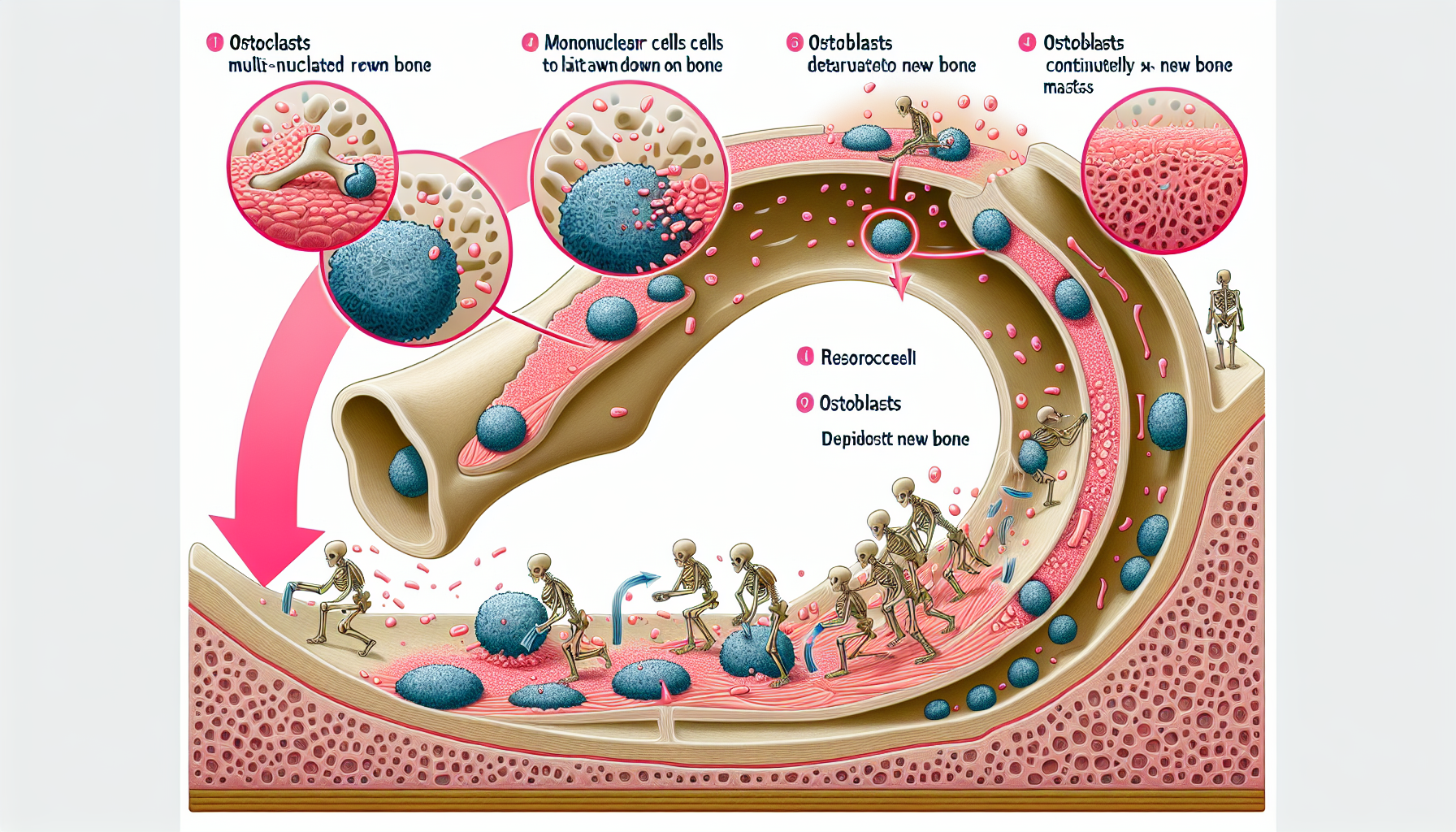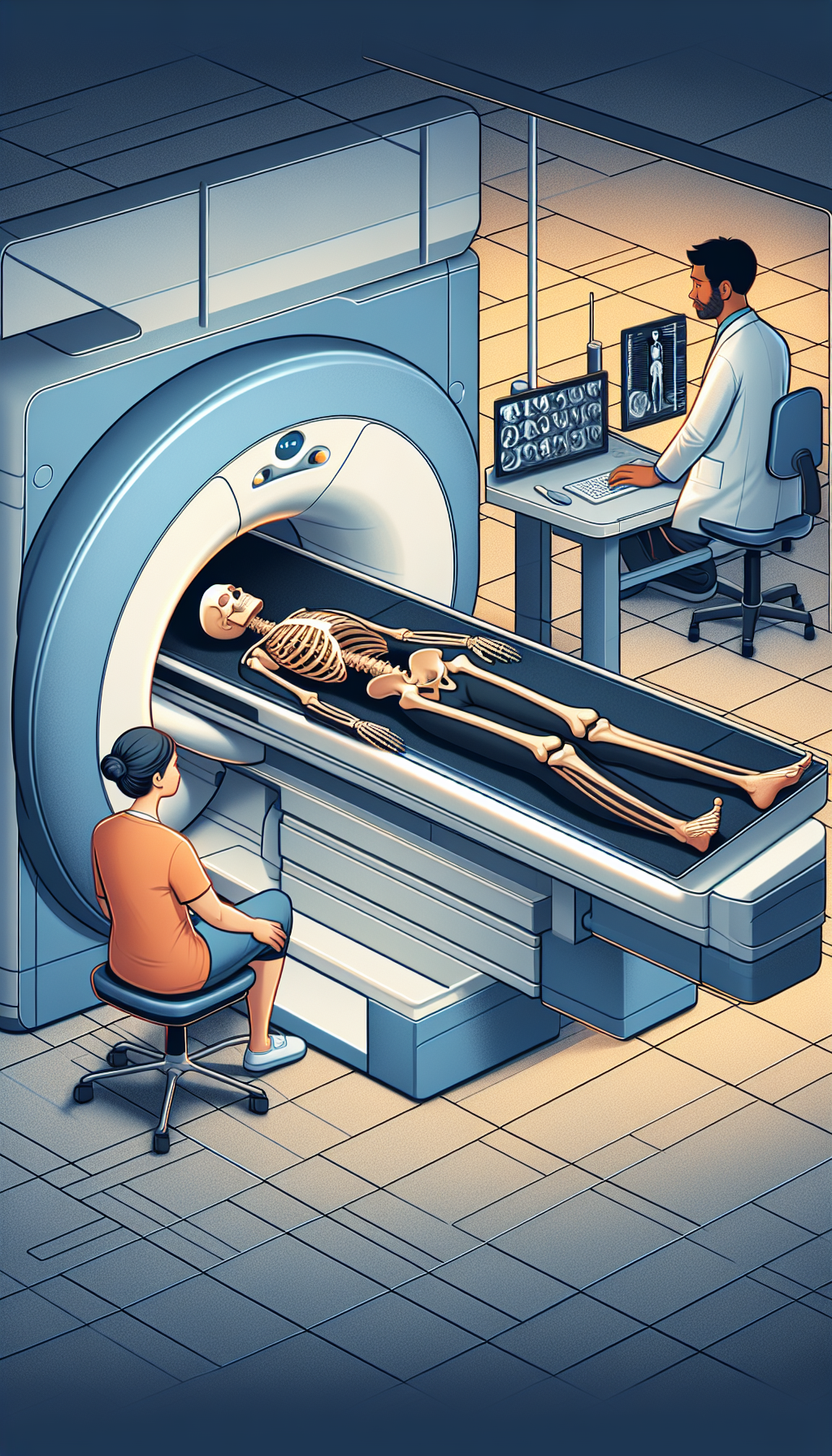Bone health is a critical aspect of overall well-being, yet it is often overlooked until issues arise. One of the most fascinating and significant processes within our skeletal system is bone remodeling. This continuous cycle of bone resorption and formation is vital for maintaining the strength and integrity of our bones throughout life. In this comprehensive guide, we will delve into the intricacies of bone remodeling, its importance for health, and how lifestyle choices can influence this dynamic process.
The Bone Remodeling Cycle: A Dynamic Process
Bone remodeling is a biologically intricate process involving two main types of cells: osteoclasts, responsible for bone resorption, and osteoblasts, which facilitate bone formation. The balance between these two cellular activities is crucial for maintaining bone density and repairing micro-damages that occur from daily stressors.
The Role of Osteoclasts and Osteoblasts
Osteoclasts are the bone-resorbing cells that break down bone tissue, releasing minerals such as calcium and phosphorus into the bloodstream. This process is not merely destructive; it’s a necessary part of bone health, as it helps to remove old or damaged bone tissue. On the other hand, osteoblasts are the builders. They synthesize new bone matrix and facilitate the mineralization process, ensuring that new, healthy bone tissue replaces what the osteoclasts have resorbed.
The Significance of Bone Remodeling
The significance of bone remodeling extends beyond mere maintenance. This process allows the skeleton to adapt to new stresses, ensuring that bone density and structure are optimized for the body’s needs. It also plays a key role in regulating mineral homeostasis, which is crucial for various bodily functions, including nerve transmission and muscle contraction.
Moreover, bone remodeling is vital for healing. When a bone fracture occurs, the remodeling cycle accelerates in the affected area to repair the damage. This ability to self-repair exemplifies the resilience and adaptability of the human skeleton.
Factors Influencing Bone Remodeling
Several factors can influence the rate and effectiveness of bone remodeling, including hormonal changes, nutrition, physical activity, and overall health status.
Hormones and Bone Health
Hormones such as estrogen, testosterone, and parathyroid hormone have a direct impact on bone remodeling. For instance, estrogen deficiency during menopause can lead to an increase in bone resorption, resulting in a decrease in bone density. This is why understanding and combatting bone density loss during menopause is crucial for women’s health.
Nutrition’s Role
Nutrition plays a pivotal role in bone health. Adequate intake of calcium and vitamin D is necessary for optimal bone mineralization. Moreover, other nutrients like magnesium, potassium, and vitamins K and C are also important. For example, the importance of potassium in bone health is often understated, but it contributes to the regulation of calcium balance and supports overall bone strength.
The Impact of Physical Activity
Physical activity, particularly weight-bearing exercises, stimulates bone formation. The stress placed on bones during exercise prompts osteoblasts to build stronger bones, which is why fitness is an integral part of bone health considerations for athletes.
Enhancing Bone Remodeling through Lifestyle Choices
Lifestyle choices can either promote or hinder the bone remodeling process. Here are some strategies to enhance bone health:
- Nutrition: Ensuring a balanced diet rich in bone-friendly nutrients supports the remodeling process. Explore bone strengthening strategies for vegetarians to ensure that dietary choices align with bone health needs.
- Exercise: Engage in regular physical activity, focusing on strength training and weight-bearing exercises to stimulate bone growth.
- Lifestyle Modifications: Limiting alcohol consumption and avoiding smoking can help maintain bone density.
- Medication & Supplements: In some cases, medications or supplements may be necessary to support bone health. Always consult healthcare professionals before starting any new regimen.
The Role of Sleep and Stress in Bone Remodeling
Sleep and stress levels have a surprising impact on bone health. The importance of sleep for bone repair and health cannot be overstated, as it is during rest that the body can efficiently conduct repair processes, including bone remodeling. Similarly, chronic stress can negatively affect this cycle, leading to potential bone health issues.
Monitoring Bone Health: Bone Density Scans and Beyond
To assess the state of one’s bone health, bone density scans can be a valuable tool. These scans can help identify osteoporosis and other bone-related conditions. Evaluating the effectiveness of different bone density scans can guide individuals in choosing the most appropriate diagnostic approach.
Additionally, it’s important to consider other factors such as genetics, age, and underlying health conditions when monitoring bone health. For instance, gender differences play a role, as women are generally at a higher risk for osteoporosis, as highlighted in the discussion on gender differences in bone density and health.
Future Directions in Bone Health Research
The field of bone health is continuously evolving, with new research shedding light on factors such as the role of omega-3 fatty acids in bone density and the potential therapeutic applications of bone marrow in treating bone-related disorders.
In conclusion, understanding bone remodeling and its significance is crucial for maintaining a healthy and active life. By making informed lifestyle choices, seeking appropriate medical advice, and staying abreast of the latest research, individuals can take proactive steps to ensure their bones remain strong and resilient throughout their lifetime.
For those interested in diving deeper, consider exploring external resources such as The National Institutes of Health Osteoporosis and Related Bone Diseases, The International Osteoporosis Foundation, and The Bone Health and Osteoporosis Foundation. These specialized resources provide valuable insights into bone health, prevention strategies, and treatment options for bone-related conditions.



